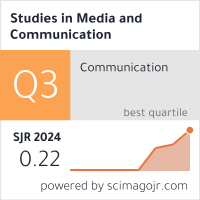On the Epistemic Role of Narrative Features in Determining Unsubstantiated Scientific Practices
Abstract
Purpose: This study explores the disciplinary narrative structured in a specific scientific context: cancer research. Specifically, it examines the narratives of ten biologists vis-à-vis the use of machines and consumables within a cancer research lab in Belgium. The aim is to answer the following main research question: What is the relationship between the scientists and the lab's machines and consumables?
Design: A qualitative analysis is conducted over 18 months of a) participant-observation recordings, b) semi-structured individual interviews, and c) collective interviews with ten lab scientists. The analysis is guided by Walter Fisher's narrative paradigm and Mona Baker's narrative features.
Findings: The findings expose a problematic relationship between the scientists and their lab machines and suggest that scientists trust machines and consumables unquestionably. This problematic relationship is evidenced as the scientists' narratives violate four narrative features: 1) temporality, 2) causal emplotment, 3) relationality, and 4) selective appropriation. The study claims that these narrative features are well-positioned to identify unsubstantiated scientific practices.
Full Text:
PDFDOI: https://doi.org/10.11114/smc.v12i2.6737
Refbacks
- There are currently no refbacks.
Studies in Media and Communication ISSN 2325-8071 (Print) ISSN 2325-808X (Online)
Copyright © Redfame Publishing Inc.
To make sure that you can receive messages from us, please add the 'redfame.com' domain to your e-mail 'safe list'. If you do not receive e-mail in your 'inbox', check your 'bulk mail' or 'junk mail' folders.
If you have any questions, please contact: smc@redfame.com
------------------------------------------------------------------------------------------------------------------------------------------------------

